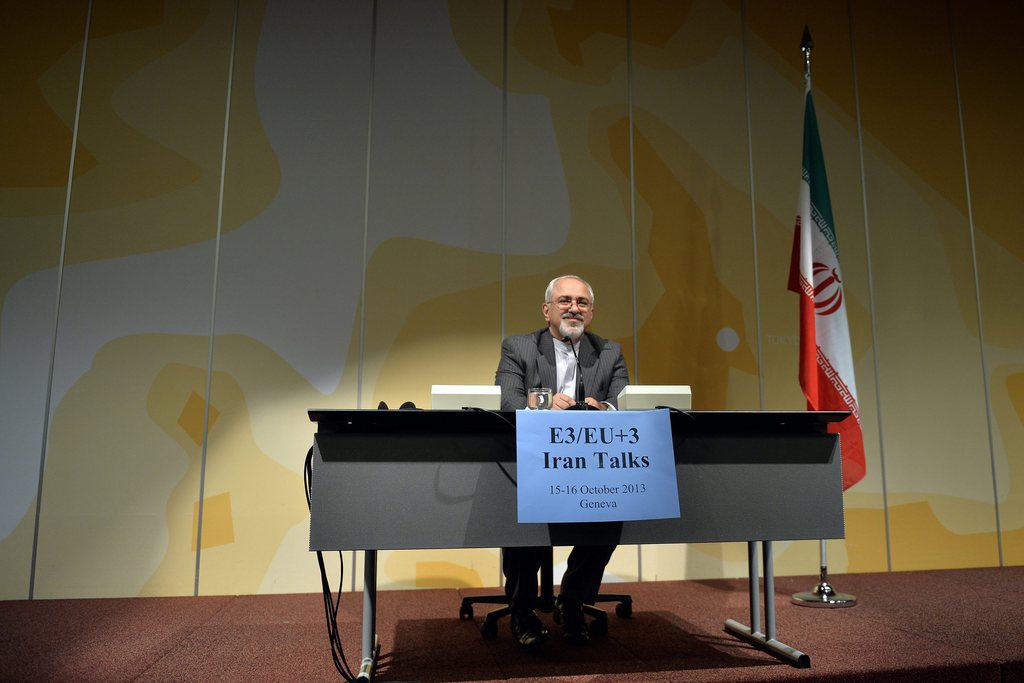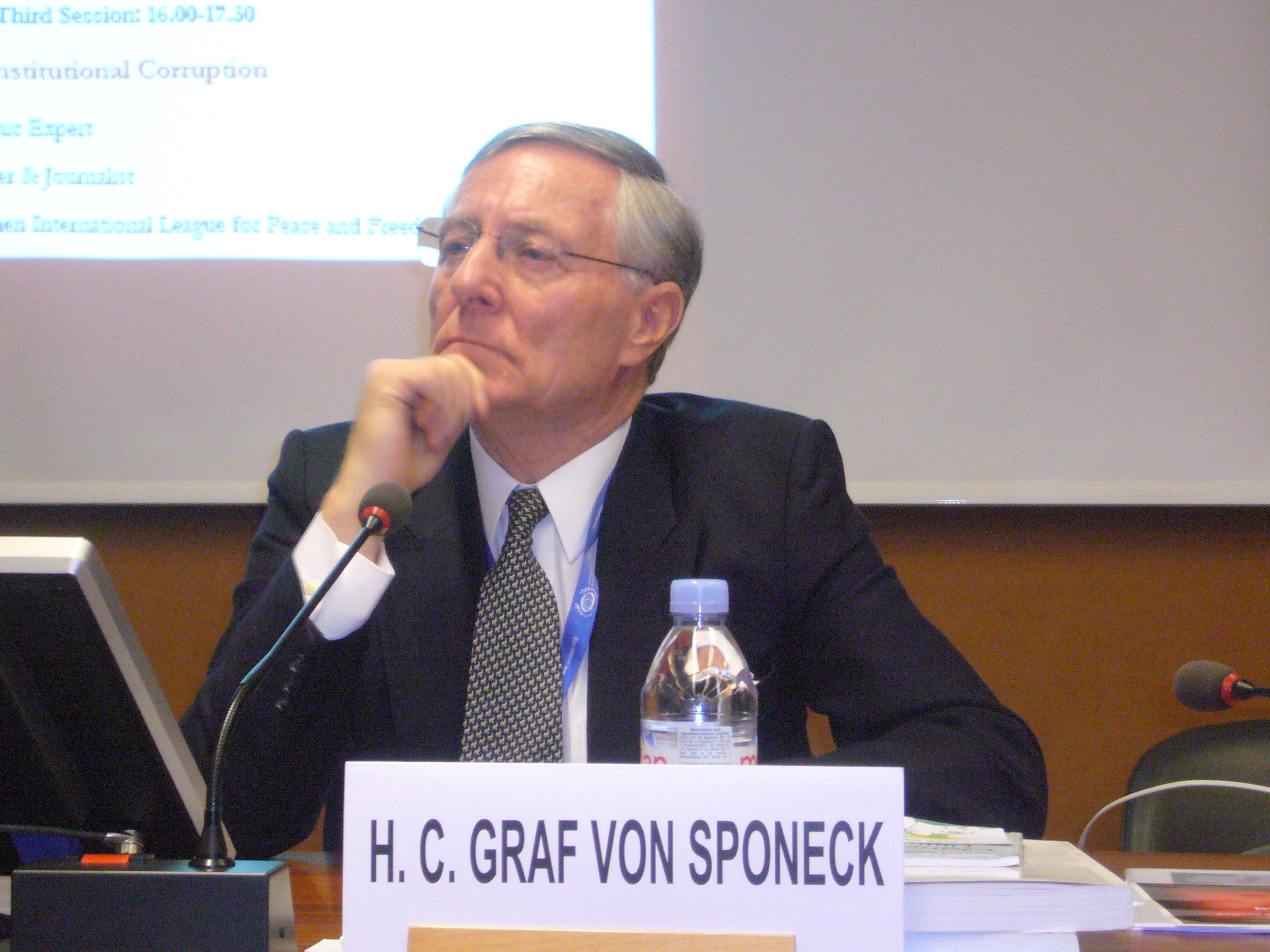Tehran opens the door in Geneva

After years of no progress, multilateral talks on limiting Iran’s nuclear capacity have begun to take off. For Mohamed-Reza Djalili, a former professor at Geneva’s Graduate Institute of International and Development Studies, discussions this week seem to point in this direction.
For the first time during talks, the heads of the European and Iranian diplomacies issued a joint statement. This came after Iran’s negotiators and representatives of the five permanent members of the United Nations Security council plus Germany met in Geneva on October 15 and 16.
Signed by EU Commissioner Catherine Ashton and Iran’s Foreign Minister Mohammad Javad Zarif, it stated that “the Foreign Minister of the Islamic Republic of Iran presented an outline of a plan as a proposed basis for negotiation, which is being carefully considered by the E3+3 as an important contribution.”
A new round of talks has already been announced for November 7 and 8 – talks that will be preceded by technical discussions between nuclear and sanctions specialists.
June 15, 2013: Hassan Rohani is elected Iranian president as the successor to the controversial Mahmoud Ahmadinejad. At his first press conference two days later, he announces that Iran will be more transparent about its nuclear programme and wants to improve its relationship with the United States and the rest of the world. But he also reaffirms Iran’s right to enrich uranium.
August 28: In a quarterly report, the International Atomic Energy Agency points out that Iran has increased its capacity to enrich uranium, but reckons that with just 186 kilogrammes of enriched uranium, the Iranians are still short of the 240 to 250 kilogrammes required to create a bomb.
September 27: Barack Obama and Rohani talk on the phone – the first time this has happened since diplomatic relations broke down between the US and Iran in 1980 and the American embassy hostage crisis in Tehran. The US president speaks of a unique opportunity to make progress on the Iranian nuclear issue.
swissinfo.ch: Talks in Geneva led to a joint statement, the first time this has happened in relation to the Iran nuclear issue. Is this a sign of progress?
Mohamed-Reza Djalili: There was a real feeling of optimism in the air in Geneva, so we expected significant breakthroughs. It wasn’t quite that, but the fact that there was a joint statement signed by both parties and that fresh talks are planned is occasion for optimism.
swissinfo.ch: The statement mentions meetings between nuclear and sanctions specialists from both sides ahead of the November talks. Does this mean that things are getting serious?
M-R.D.: It’s very positive. The Geneva talks help rebuild mutual confidence between Iran and the six other nations. The next three weeks will give the experts time to prepare the upcoming meeting that could lead some concrete proposals. Diplomats will have time to coordinate with their governments about an appropriate response to the Iranian proposals. However we do not know what these are as they have been kept under wraps.
swissinfo.ch: Isn’t Iran just trying to buy time as it has in the past?
M-R.D.: If that was the case, the next meeting would be in six months’ time. But the Iranian president Hassan Rohani is in a real hurry. Iran’s economic situation is catastrophic and he was elected to improve the economy. All the ultra-conservatives who opposed him – and there are quite a few – will leap on the first opportunity to make him look bad. Even the Supreme Leader [Ali Khamenei, Iran’s actual head of state] was in two minds about starting talks. Rohani therefore is under more pressure than the six governments facing him.
swissinfo.ch: So getting sanctions lifted, even partially, is more important than maintaining nuclear capacities for Tehran?
M-R.D.: Of course. Rohani wants to normalise the relationship with Western nations so he can find the funding needed to reboot the Iranian economy. If there is fast progress on nuclear issues, some sanctions could be lifted, like the ones affecting the Iranian banking sector, and that would be a breath of fresh air for the economy.
swissinfo.ch: If there is a positive outcome at these talks, will that open fresh perspectives for all of the Middle East, especially concerning the Syria situation?
M-R.D.: It would allow us to take into account Iran’s regional policies better, which could help influence the Syrian conflict. It could also lead to closer ties between Saudi Arabia and Tehran, replacing the current cold war between the two countries. This could help lower tensions between Sunni and Chia Muslims and would have huge positive consequences for the region.
Iran is a very stable nation compared with its neighbours Iraq, Syria, Pakistan and Afghanistan.
swissinfo.ch: What are the Russian interests in all of this?
M-R.D.: The negotiations in Geneva are also positive for Russia, which does apply sanctions against Iran even though it supports Tehran diplomatically. The Russians are fairly flexible during talks, far more than say France, which takes a much harder line than most European nations.
swissinfo.ch: Is China making itself heard during these talks?
M-R.D.: Beijing has close economic ties with Iran, especially as there has been an embargo on Iranian oil. China wants good relations with Tehran, particularly when it comes to Pakistan, Afghanistan and the Gulf region. China, like Russia, is associated with Iran through the Shanghai Group.
(Translated from French by Scott Capper)

In compliance with the JTI standards
More: SWI swissinfo.ch certified by the Journalism Trust Initiative










You can find an overview of ongoing debates with our journalists here . Please join us!
If you want to start a conversation about a topic raised in this article or want to report factual errors, email us at english@swissinfo.ch.